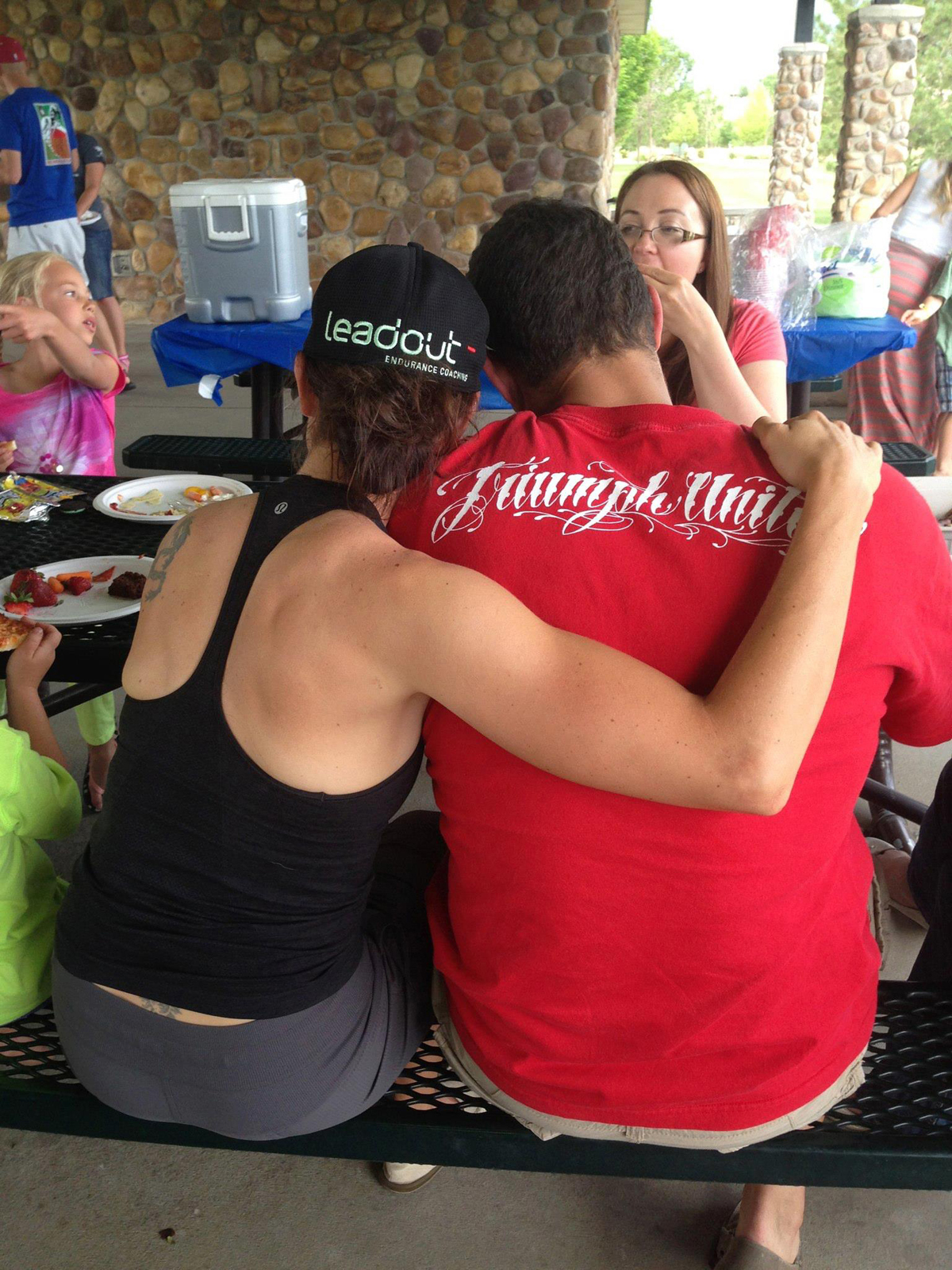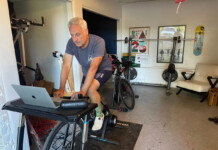By Mark Deterline – This is a great time of year for cyclists, as well as all outdoor enthusiasts. Leaves are changing colors, making time on the bike and on trails a glorious celebration of Utah’s natural beauty. Some are preparing for the final bike races of the season, such as LOTOJA, while others are transitioning to cyclocross, running or will soon be competing in fall triathlons.
For many bike racers, it represents an opportunity for a healthy change of pace. Fitness levels are high, but so are burnout rates; many are feeling the effects of a long season, while teams are already trying to build their 2014 rosters.

One of the benefits of coaching and modern training is periodization. Depending on your focus and goals, there are “appropriate” types and volume of workouts to do at different times of the season. That includes rest!
September and October can be fun and satisfying months, as training can be less structured, and downtime is generally recommended. Each of us needs to determine where we are at, and what we want to accomplish in the “off-season”, which makes this particular period especially important.
In one of my articles last year, I emphasized the trend of athletes to remain coaching throughout the year, instead of suspending their structured training in September and/or October. Some of this depends on whether an athlete is preparing for a season of cyclocross, cross country skiing, hockey or other typically fall-winter discipline. For hardcore cyclists, reasons to continue structured training – with or without a coach – include:
- Maintaining fitness
- Avoiding overtraining
- Determining & setting goals for the coming season
- Staying lean
- Learning from the current/previous season
- Dialing in biomechanics & equipment
- Simply: Knowing what to do when you’re not building, tapering & peaking for events
Maintaining fitness may not seem like a big one, but when considered in the context of the second point, avoiding overtraining, it truly is significant. Some athletes may be capable of continued exercise while diversifying – i.e. cross-training – and staying fresh. However, many athletes have a hard time knowing when to take important time off the bike, and how much of other sports to engage in.
Knowing when and how to rest is a science, yes, but also highly personal. Rest and recovery are as important as any workouts we can do. We must recharge our batteries certain times of the year both mentally and physically, and every individual is different. I have athletes who can compete at peak or near peak performance longer than others, so each client’s season and targeted events must be tailored accordingly.
Which brings us to determining and setting goals. Athletes may have ambitions, but in my experience most don’t realize what they are truly capable of. One of the greatest joys of coaching is witnessing an athlete’s transformation into what they aspired to become much quicker or to a profounder extent than they might have hoped. September and October are great months to enjoy lower-key training while finding renewed motivation and a competitive edge for the coming season. That makes goal-setting easier, more energizing and more meaningful.
As most athletes and individuals can attest, staying lean throughout the season is a huge favor we can do for ourselves. That generally makes the off-season less stressful, and the early season more rewarding. Now this is important: There is nothing wrong with a little fluctuation at different times of the year.
Many of the athletes I’ve worked with over the years cannot necessarily maintain full-on racing or “fighting” weight all season long. A little indulgence can go a long way in keeping an individual motivated throughout the year, and not all events require our optimal power-to-weight ratios. I get a kick out of clients telling me they are “fat and happy”, and feeling great while exercising – it usually means they have enjoyed food or drink they often avoid during peak cycles, or are spending more time with friends and family who are often neglected during the competitive season. They key is limiting fluctuations to healthy levels and goals to sustainable targets.
September and October are also important months to look back over previous seasons and learn from experiences, good and bad. Good coaches and mentors will help you realize how far you’ve come, and what the future may hold for you as an athlete. It is a time to examine skills and event strategies. It is a time to determine ways that you can become a more well-rounded athlete, cross-train to turn weaknesses into strengths, as well as to avoid injury. It is also a good time to explore sports psychology, with your coach or a specialist, to ensure that you are not holding yourself back mentally.
Finally – and this is one of my favorites – it is a time to take a step back and consider balance in your life. I remember riding with a former Ironman World Champion; we were road-testing products for famed carbon component manufacturer ENVE. At one point we were discussing the importance of relationships in competitive sports. “It has always baffled me how people are willing to sacrifice potentially the most important relationship in their life for a sport.” True that: In my book as well as his, the most impressive champions balance love and sport to be well-rounded human beings.
Proper biomechanics, including a thorough professional bike fit, can make all the difference in performance, comfort and injury-avoidance. That includes seeking medical help as needed. As a coach, you never want to tell a client “I told you so”; you want to help them avoid mistakes and setbacks in the first place. There is a physical therapist I send client after client to, because he is not only highly skilled, he is also supremely dedicated to every person he works with. One of my clients FINALLY went in to see him this month, and texted me afterwards: “I wish I would have listened to you [and went to see Dr. Schwartz] back in March!” That was truly bittersweet.
Each month is a piece of your annual training puzzle, so each plays a role in your success. Many athletes don’t like uncertainty, and even more can’t resist the urge to overtrain. So do some research, or seek out the help of a competent coach or mentor. Enjoy cross-training and rest, the company of loved ones, the benefits of taking care of your body, and learn what it means to stay motivated and “hungry”. The balance will do you good!
Prior to his untimely death in July 2019, Mark Deterline coached some of Utah’s and California’s top cyclists, as well as triathletes, distance runners, cross-country skiers, motocross racers and boxers.








